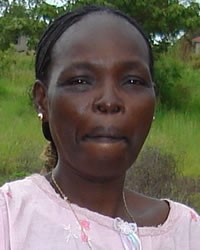Belanda Bor in South Sudan

Photo Source:
John Gabriel
|
Send Joshua Project a map of this people group.
|
| People Name: | Belanda Bor |
| Country: | South Sudan |
| 10/40 Window: | No |
| Population: | 26,000 |
| World Population: | 26,000 |
| Primary Language: | Belanda Bor |
| Primary Religion: | Ethnic Religions |
| Christian Adherents: | 16.00 % |
| Evangelicals: | 5.00 % |
| Scripture: | Translation Started |
| Ministry Resources: | No |
| Jesus Film: | No |
| Audio Recordings: | Yes |
| People Cluster: | Nilotic |
| Affinity Bloc: | Sub-Saharan Peoples |
| Progress Level: |
|
Introduction / History
The Belanda Bor people, also known as Balanda Boor, are an ethnic group residing in Western Bahr-el-Ghazal and Western Equatoria States of South Sudan. They speak the Belanda Bor language, a member of the Western Luo branch of the Nilotic language family. Most Belanda Bor are also bilingual in Belanda Viri, a Ubangian language.Their history is rooted in migration and cultural blending. According to oral tradition, their founding ancestor Bwor, son of Nyikango (the Shilluk nation's founder), chose to remain behind during a northward migration, settling with his maternal Bviri relatives. The Belanda Bor later experienced Azande domination in the 18th century, which influenced their socio-political structures and cultural practices.
What Are Their Lives Like?
The Belanda Bor live in low-lying plains dotted with hills and dissected by rivers such as the Sue (Jur) and Bo. Their climate is tropical, supporting woodland vegetation and tall grasses. They are agrarian, practicing subsistence farming and raising goats, sheep, and poultry. Principal crops include maize, sorghum, beans, cassava, sweet potatoes, and sesame. They also engage in honey collection and hunting.Socially, the Belanda Bor are divided into two major groups: the river people (Jo Kunam) and the hill people (Jo Ugot), with the latter further divided into clans such as Fugaya, Afaranga, and Mbene. Their society is organized into agnatic lineages, and traditional authority is maintained through clan chiefs and elders, despite the influence of government-appointed leaders.
What Are Their Beliefs?
The Belanda Bor predominantly follow ethnic religions, with 84% adhering to traditional beliefs. These include reverence for a supreme being (Juok) and ancestor spirits, communicated through fortune tellers, mediums, and medicine men and women. About 16% identify as Christian, and 5% are Evangelical believers. A small number have converted to Islam.
What Are Their Needs?
With a majority practicing ethnic religions, there is a need for discipleship, church planting, and Bible translation in Belanda Bor.Formal education is limited, and the Belanda Bor language is not widely taught in schools. Literacy programs could help preserve their language and improve opportunities. Remote living conditions hinder access to medical services. Mobile clinics and health education could improve well-being. Expanding access to markets for agricultural products and honey could enhance livelihoods.
Prayer Points
Pray for the translation and distribution of Scripture in the Belanda Bor language.Pray for them to have such an interest in God's word that they will learn it and teach it through music and dance.Pray for peace and stability in Western Bahr-el-Ghazal and Western Equatoria to allow safe outreach.Intercede for educational and healthcare initiatives to reach Belanda Bor communities.Pray that soon they will become Christ's ambassadors to disciple less-reached nations.